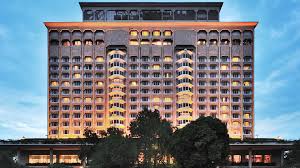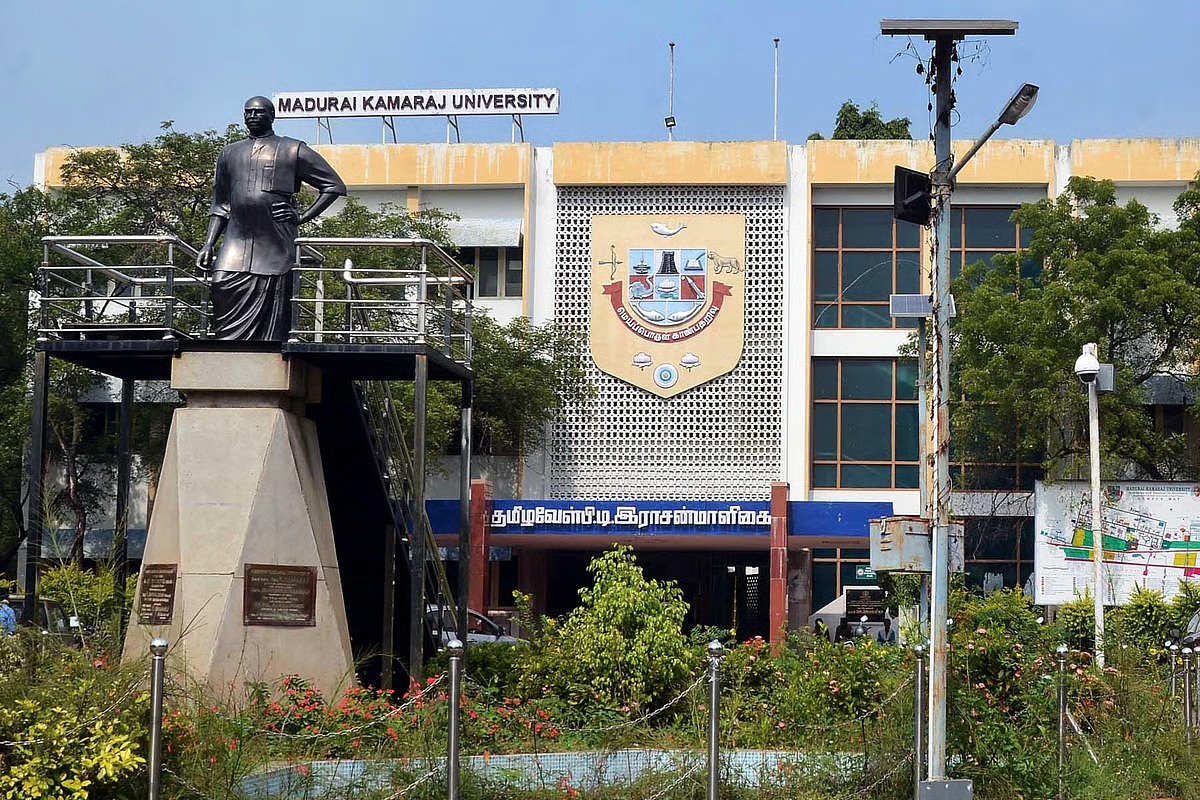V.K. Shukla, J.@mdashIn the present case on 10.2.2010 District Panchayat Raj Officer has passed order nominating Sukh Sagar, respondent No. 5 to function as officiating Pradhan.
2. Brief background of the case is that Munna Yadav was the Pradhan and he died on 10.12.2009. District Magistrate on 7.2.2010 has nominated Sukh Sagar to function as officiating Pradahan. At this juncture present writ petition has been filed.
3. Sri Ramanuj Yadav, Advocate, learned Counsel for petitioner contended with vehemence that in the present case, at no point of time, petitioner had ever given up office of pradhan and as such arrangement, which has been made is unjustifiable arrangement.
4. Countering the said submission, learned Standing Counsel as well as Sri V.S. Dwivedi, Advocate on the other hand contended that rightful arrangement has been made, as such no interference be made.
5. At this juncture Section 12J of the Act, which deals with making of arrangement in temporary vacancy in the office of Pradhan is being extracted below:
12-J Arrangement in temporary vacancy in the office of Pradhan:
(1) Where the office of Pradhan is vacant by reason of death, removal, resignation or otherwise, or where the Pradhan is incapable to act by reason of absence, illness or otherwise, the Up-Pradhan shall exercise all powers and discharge all duties of the Pradhan.
(2) Where the offices of both, Pradhan and Up-Pradhan are vacant for any reason whatsoever, or when both Pradhan and Up-Pradhan are incapable to act for any reason whatsoever, the prescribed authority shall nominate a member of the Gram Panchayat to discharge the duties and exercise the powers of the Pradhan until such vacancy in the office of either the Pradhan or the Up-Pradhan is filled in, or until such incapacity of either of the two is removed
6. Said provision in question has been subject matter of interpretation before this Court and this Court in the case of
7. A perusal of Section 12J of U.P. Panchayat Raj Act shows that if the office of Pradhan becomes vacant then the Up-Pradhan would exercise the function of Pradhan. Sub-section (2) of Section 12J of the Act states that if the office of both Pradhan and Up-Pradhan are vacant, or if for any reason both Pradhan and Up-Pradhan are incapable to act, the prescribed Authority shall nominate a member of the Gaon Panchayat to discharge the functions of the Pradhan until the office of Pradhan or Up-Pradhan is filled up. Sub-section (2) does not state which member of the Gaon Panchayat should be nominated by the Prescribed Authority to discharge the functions of the Pradhan. Literally construed the said provisions gives absolute discretion to the Prescribed Authority to nominate any member of the Gaon Panchayat for this purpose. Such an interpretation, however, would make the provision arbitrary and also unconstitutional since no guiding principles has been laid down as to how the discretion of the prescribed authority is to be exercised and in various of which members of the Gaon Panchayat. However, it is a settled principle of interpretation that the Courts should as far as possible try to avoid holding a statute to be unconstitutional, and if an interpretation can be found which makes the statute constitutional, such an interpretation should be accepted . In my opinion, since the Gaon Sabha and Gaon Panchayat are democratic bodies elected by the people, the proper interpretation of Sub-section (2) of Section 12J would be that in case where the offices of both Pradhan and Up Pradhan are vacant, or when both Pradhan and Up-Pradhan are incapable to act, the Prescribed Authority should ask the members to act, the Prescribed Authority should ask the members of Gaon Panchayat to hold a meeting , and such members should decide among themselves which member should be nominated as Pradhan for the interim period until regular election, and such member should be nominated as officiating Pradhan u/s 12(2). Such an interpretation would be inconsonance with the democratic principle underlying the U.P. Panchayat Raj Act, and would also make the statute.
8. Said view has again been reiterated by this Court in the case of Udaivir v. The State Election Commission of U.P. through its Chairman and others, decided on 11.4.2008 in Writ Petition No. 53468 of 2007. The judgment of learned single judge in the aforementioned case has been approved of by Division Bench of this Court in the case of Udaivir v. State Election Commission 2009 (106) RD 151. View has been taken as follows:
This Special Appeal has been preferred against the impugned judgment and order of the Hon''ble Single judge dated 11th April, 2008 passed in Civil Misc. Writ Petition No. 53468 of 2007; Udaivir v. The State Election Commission of U.P. through its Chairman and others, filed by the appellant against appointment of respondent No. 7 as officiating Pradhan has been dismissed.
The Hon''ble Single Judge after considering the facts and law applicable came to the conclusion that the wishes of the elected members of the Gram Panchayat could have been ascertained before nominating any member to officiate as Pradhan till the regular election qua the office is held, in exercise of powers u/s 12J of the U.P. Panchayat Raj Act.
We have hared Sri B.N. Singh learned Counsel for the appellant -petitioner, Sri S.C. Pandey, learned Counsel for respondent No. 7, Sri K.P., Singh, learned Counsel for the respondent no1. and learned Standing Counsel for other respondents, and perused the records of the present special appeal.
Considering the basic concept of the democracy set up for the Panchayat Raj under the provisions of Article 243 of the Constitution, we are of the o9pinion that respondent No,3, i.e. District Magistrate, Aligarh ought to have ascertained the wishes of the elected members of the Gram Panchayat, as to who should be the officiating Pradhan for the period till the regular election of the Gram Pradhan is held. Further every attempt should be made to elect the new Pradhan at the earliest possible
In view thereof, we dispose of this Special appeal with a request upon the District Magistrate i.e. respondent No. 3 to convene a meeting of the elected members of the Gram Panchayat within a period of two weeks from the date of certified copy of this order is filed before him, nominating some responsible officer not below the rank of Sub Divisional Magistrate, to chair the meeting of the elected members so as to ascertain the wishes qua nomination of officiating Pradhan. Person so nominated would be handed over the charge forthwith. We also request the District Magistrate to ensure that the election of the Gram Pradhan of the village concerned be held in accordance with law at the earliest possible.
9. In the case of
10. These two judgments of learned Single judge has been passed in ignorance of the judgment Division Bench judgment of this Court decided on 23.4.2008 reported in 2009 (106) RD 151 Udaivir v. State Election Commission of U.P. through its Chairman and others. It appears that Division Bench judgment has not been placed before the learned Single Judge. Once on the same subject matter, the view of Division Bench of this Court is there and view mentioned therein has been holding the field since more than15 years, then in this background judicial discipline impels this Court to follow the view which has been laid down by the Division Bench of this Court in the case of 2009 (106) RD 151 Udaivir v. State Election Commission of U.P. through its Chairman, which clearly provides that considering the basic concept of the democracy set up for the Panchayat Raj under the provisions of Article 243 of the Constitution, District Magistrate ought to have ascertained the wishes of elected member of the Gram Panchayat, as to who should be the officiating Pradhan for the period till the regular election of the Gram Pradhan is held.
11. It is true that language of Section 12J of U.P. Panchayat Raj Act, 1947 does not talk of convening any meeting but by judicial pronouncement. Looking into the fact that, it is democratic elected office in view of Article 243, qua which interim arrangement is to be made, the lacuna has been sought to be filled up by directing that meeting shall be convened and then as per the majority wish interim arrangement should be made amongst elected Gram Panchayat members.
12. On the parameter as set out, factual position, which is emerging in the present case is that, at no point of time, District Magistrate had ever convened any meeting of elected members of Gram Panchayat to ascertain the wishes and thereafter, proceeded to nominate either the petitioner or respondent No. 4 as Pradhan. As neither in the case of petitioner nor in the case of respondent No. 4 any such meeting had been convened by the District Magistrate, Chitrakoot, as such District Magistrate, Chitrakoot is directed to get meeting convened of the elected member of Gram Panchayat Rasin, Block Chitrakoot Dham Mandal, District Chitrakoot within fifteen days from the date of receipt of certified copy of this order and thereafter take appropriate decision in respect of interim arrangement. Arrangement made on earlier occasion shall abide by final order to be passed by the District Magistrate, Chitrakoot.
13. Continuance on the post of Pradhan shall continue till fresh arrangement is made by the District Magistrate, Chitrakoot pursuant to order passed by this Court.
14. With these observations, writ petition is disposed of.

